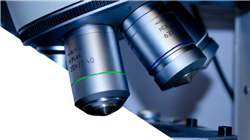University certificate
The world's largest faculty of pharmacy”
Introduction to the Program
With this 100% online program, you will acquire competencies in the identification and analysis of disease patterns, the implementation of outbreak prevention strategies and the management of health emergencies”

The COVID-19 pandemic has underscored the critical importance of robust, real-time surveillance systems that enable early detection of outbreaks and rapid implementation of control measures. At the same time, international cooperation and data sharing have become essential to address global health threats.
This is how this program was created, which will provide pharmacists with an in-depth understanding of the fundamental principles of health protection and prevention. In this way, epidemiological surveillance, risk assessment, management, control and communication will be covered, providing essential tools for professional practice. In addition, self-control and surveillance systems will be examined through hazard analysis and identification of critical control points.
The epidemiology and risk factors associated with diseases such as Cancer and Cardiovascular Diseases, as well as their primary and secondary prevention, will also be analyzed. Likewise, a solid basis for the detection of rare diseases and the implementation of neonatal screening programs will be provided.
Finally, the ability of professionals to identify and describe the main components of intervention studies, evaluating their quality and methodology will be developed. Pharmacists will also be able to analyze pragmatic and explanatory clinical trials, including the different phases of the design of diagnostic test validity studies. Without overlooking the importance of quality and methodological correctness in studies of prognostic factors, also introducing patient safety as a key concept in health care.
Therefore, an online program of excellent quality has been designed to meet the individual needs of students and eliminate the associated problems, such as moving to a physical campus and adapting to fixed schedules. Additionally, a revolutionary learning methodology called Relearning has been integrated, which involves the review of essential concepts to achieve a more solid understanding of the contents.
You will expand your role as a pharmacist beyond dispensing medications, becoming a key player in early disease detection and health promotion”
This Postgraduate diploma in Public Health Surveillance contains the most complete and up-to-date scientific program on the market. The most important features include:
- Development of practical case studies presented by experts in Public Health Surveillance
- The graphic, schematic, and practical contents with which they are created, provide scientific and practical information on the disciplines that are essential for professional practice
- Practical exercises where the self-assessment process can be carried out to improve learning
- Its special emphasis on innovative methodologies
- Theoretical lessons, questions to the expert, debate forums on controversial topics, and individual reflection assignments
- Content that is accessible from any fixed or portable device with an Internet connection
You will address major communicable diseases, as well as the usefulness of vaccines in the prevention of immunopreventable infectious diseases, through TECH's extensive library of multimedia resources”
The program’s teaching staff includes professionals from the sector who contribute their work experience to this program, as well as renowned specialists from leading societies and prestigious universities.
The multimedia content, developed with the latest educational technology, will provide the professional with situated and contextual learning, i.e., a simulated environment that will provide immersive education programmed to prepare for real situations.
This program is designed around Problem-Based Learning, whereby the professional must try to solve the different professional practice situations that arise during the course. For this purpose, the students will be assisted by an innovative interactive video system created by renowned and experienced experts.
Bet on TECH! As a pharmacist, you will strengthen your skills in clinical research and the application of evidence-based practices, thus contributing to the continuous improvement of Public Health"

You will interpret epidemiologic data related to environmental health and surveillance of diseases and environmental risk factors, as well as describe innovative pharmacovigilance monitoring and prevention systems"
Why study at TECH?
TECH is the world’s largest online university. With an impressive catalog of more than 14,000 university programs available in 11 languages, it is positioned as a leader in employability, with a 99% job placement rate. In addition, it relies on an enormous faculty of more than 6,000 professors of the highest international renown.

Study at the world's largest online university and guarantee your professional success. The future starts at TECH”
The world’s best online university according to FORBES
The prestigious Forbes magazine, specialized in business and finance, has highlighted TECH as “the world's best online university” This is what they have recently stated in an article in their digital edition in which they echo the success story of this institution, “thanks to the academic offer it provides, the selection of its teaching staff, and an innovative learning method aimed at educating the professionals of the future”
A revolutionary study method, a cutting-edge faculty and a practical focus: the key to TECH's success.
The most complete study plans on the university scene
TECH offers the most complete study plans on the university scene, with syllabuses that cover fundamental concepts and, at the same time, the main scientific advances in their specific scientific areas. In addition, these programs are continuously being updated to guarantee students the academic vanguard and the most in-demand professional skills. In this way, the university's qualifications provide its graduates with a significant advantage to propel their careers to success.
TECH offers the most comprehensive and intensive study plans on the current university scene.
A world-class teaching staff
TECH's teaching staff is made up of more than 6,000 professors with the highest international recognition. Professors, researchers and top executives of multinational companies, including Isaiah Covington, performance coach of the Boston Celtics; Magda Romanska, principal investigator at Harvard MetaLAB; Ignacio Wistumba, chairman of the department of translational molecular pathology at MD Anderson Cancer Center; and D.W. Pine, creative director of TIME magazine, among others.
Internationally renowned experts, specialized in different branches of Health, Technology, Communication and Business, form part of the TECH faculty.
A unique learning method
TECH is the first university to use Relearning in all its programs. It is the best online learning methodology, accredited with international teaching quality certifications, provided by prestigious educational agencies. In addition, this disruptive educational model is complemented with the “Case Method”, thereby setting up a unique online teaching strategy. Innovative teaching resources are also implemented, including detailed videos, infographics and interactive summaries.
TECH combines Relearning and the Case Method in all its university programs to guarantee excellent theoretical and practical learning, studying whenever and wherever you want.
The world's largest online university
TECH is the world’s largest online university. We are the largest educational institution, with the best and widest online educational catalog, one hundred percent online and covering the vast majority of areas of knowledge. We offer a large selection of our own degrees and accredited online undergraduate and postgraduate degrees. In total, more than 14,000 university degrees, in eleven different languages, make us the largest educational largest in the world.
TECH has the world's most extensive catalog of academic and official programs, available in more than 11 languages.
Google Premier Partner
The American technology giant has awarded TECH the Google Google Premier Partner badge. This award, which is only available to 3% of the world's companies, highlights the efficient, flexible and tailored experience that this university provides to students. The recognition as a Google Premier Partner not only accredits the maximum rigor, performance and investment in TECH's digital infrastructures, but also places this university as one of the world's leading technology companies.
Google has positioned TECH in the top 3% of the world's most important technology companies by awarding it its Google Premier Partner badge.
The official online university of the NBA
TECH is the official online university of the NBA. Thanks to our agreement with the biggest league in basketball, we offer our students exclusive university programs, as well as a wide variety of educational resources focused on the business of the league and other areas of the sports industry. Each program is made up of a uniquely designed syllabus and features exceptional guest hosts: professionals with a distinguished sports background who will offer their expertise on the most relevant topics.
TECH has been selected by the NBA, the world's top basketball league, as its official online university.
The top-rated university by its students
Students have positioned TECH as the world's top-rated university on the main review websites, with a highest rating of 4.9 out of 5, obtained from more than 1,000 reviews. These results consolidate TECH as the benchmark university institution at an international level, reflecting the excellence and positive impact of its educational model.” reflecting the excellence and positive impact of its educational model.”
TECH is the world’s top-rated university by its students.
Leaders in employability
TECH has managed to become the leading university in employability. 99% of its students obtain jobs in the academic field they have studied, within one year of completing any of the university's programs. A similar number achieve immediate career enhancement. All this thanks to a study methodology that bases its effectiveness on the acquisition of practical skills, which are absolutely necessary for professional development.
99% of TECH graduates find a job within a year of completing their studies.
Postgraduate Diploma in Public Health Surveillance
The Postgraduate Diploma in Public Health Surveillance created by TECH Global University is a 100% online academic program designed for professionals in the health sector and related areas who seek to specialize in public health monitoring. This Postgraduate Certificate offers comprehensive and up-to-date training, addressing the most advanced methodologies and technologies in population health monitoring. Throughout the program, you will explore in depth epidemiological surveillance strategies, from data collection and analysis, to the interpretation and application of these data in the creation of health policies. You will study health information systems, statistical methods for epidemiological analysis and techniques for early detection of outbreaks and pandemics. In addition, emphasis will be placed on the importance of surveillance in disease prevention and health promotion at the community and global levels. The practical focus of this program is reflected in the integration of case studies and applied projects that allow you to apply the knowledge acquired in real situations. You will learn to use digital and technological tools that facilitate disease surveillance and control, as well as to develop reports and communications that influence public health decision-making.
Specialize in Public Health Surveillance
One of the significant advantages of this course is its 100% online format, which provides flexibility to access the content from anywhere and at any time. This allows you to balance your studies with your work and personal commitments, without sacrificing the quality of your training. The teaching team, composed of experts in public health and epidemiological surveillance, will provide continuous guidance and support throughout the program. This interaction ensures that you receive high quality preparation based on the latest research and best practices in the field. Upon completion, you will be qualified to play crucial roles in public health monitoring and control. You will be able to identify and respond effectively to health threats, contribute to data-driven health policy formulation, and work collaboratively with other professionals to improve the health of communities. In short, this online program offers a unique opportunity to acquire specialized skills in public health surveillance. With a practical and flexible approach, this course will equip you with the tools you need to meet current and future challenges in protecting and promoting public health at local, national and international levels. Go ahead and enroll now!







